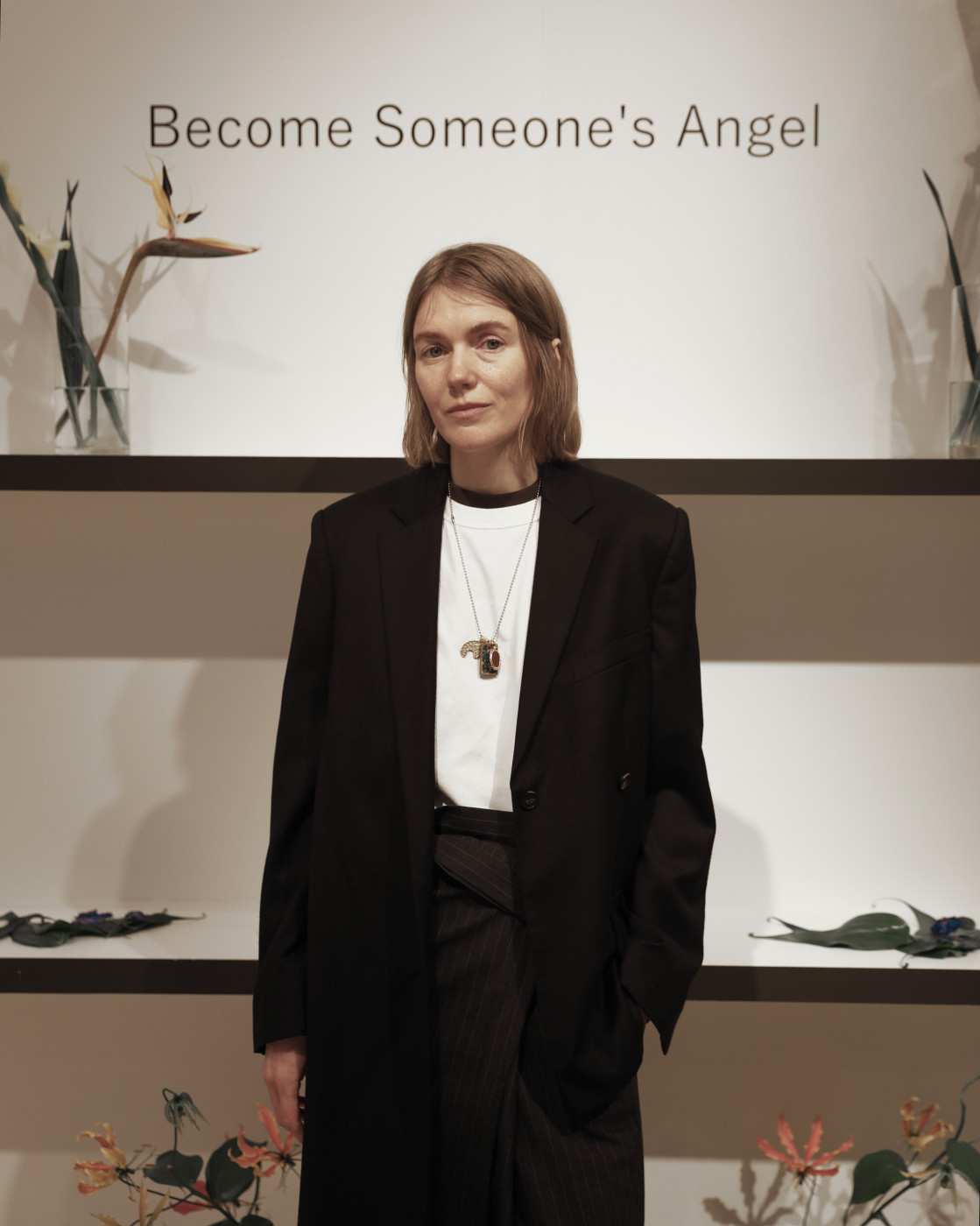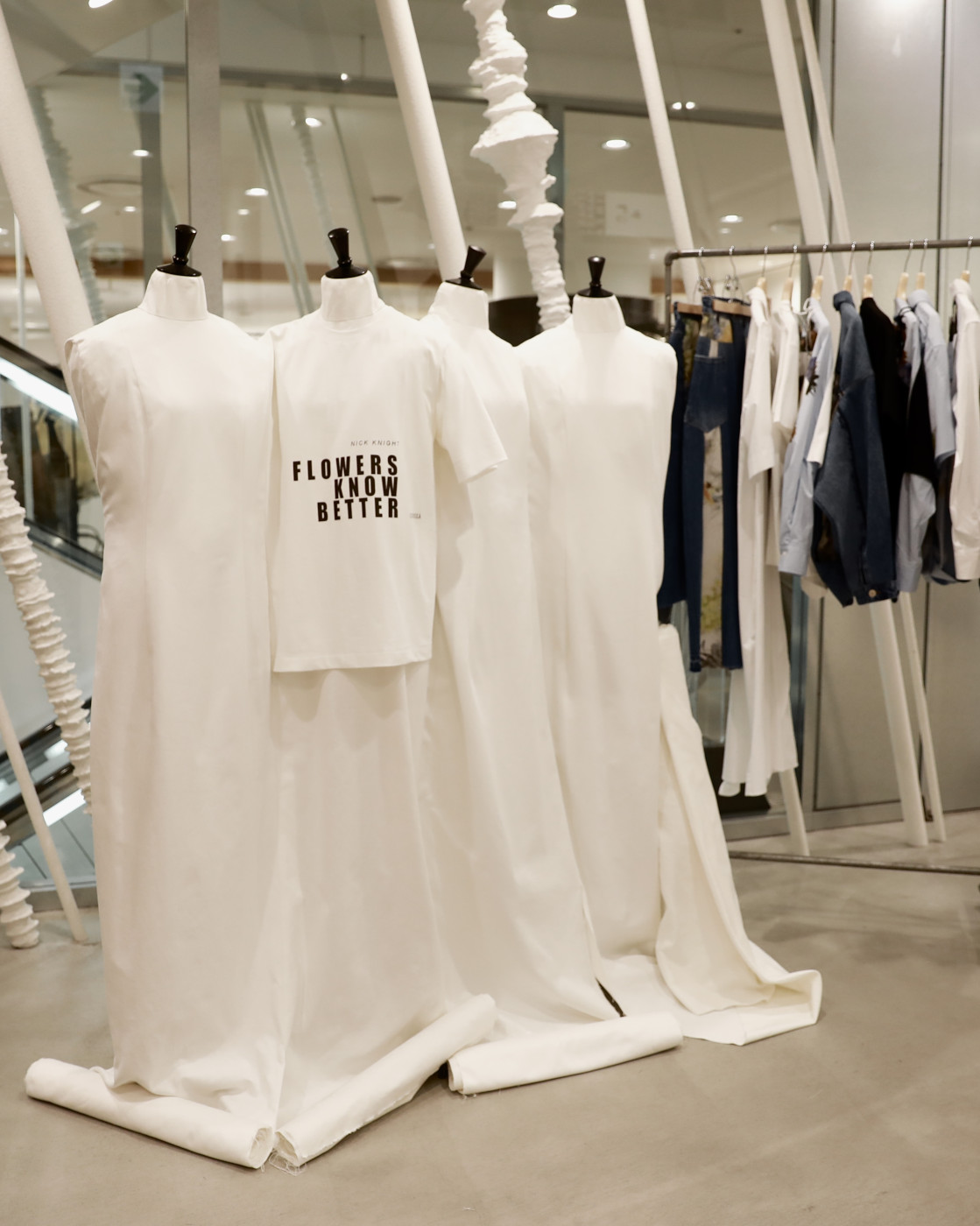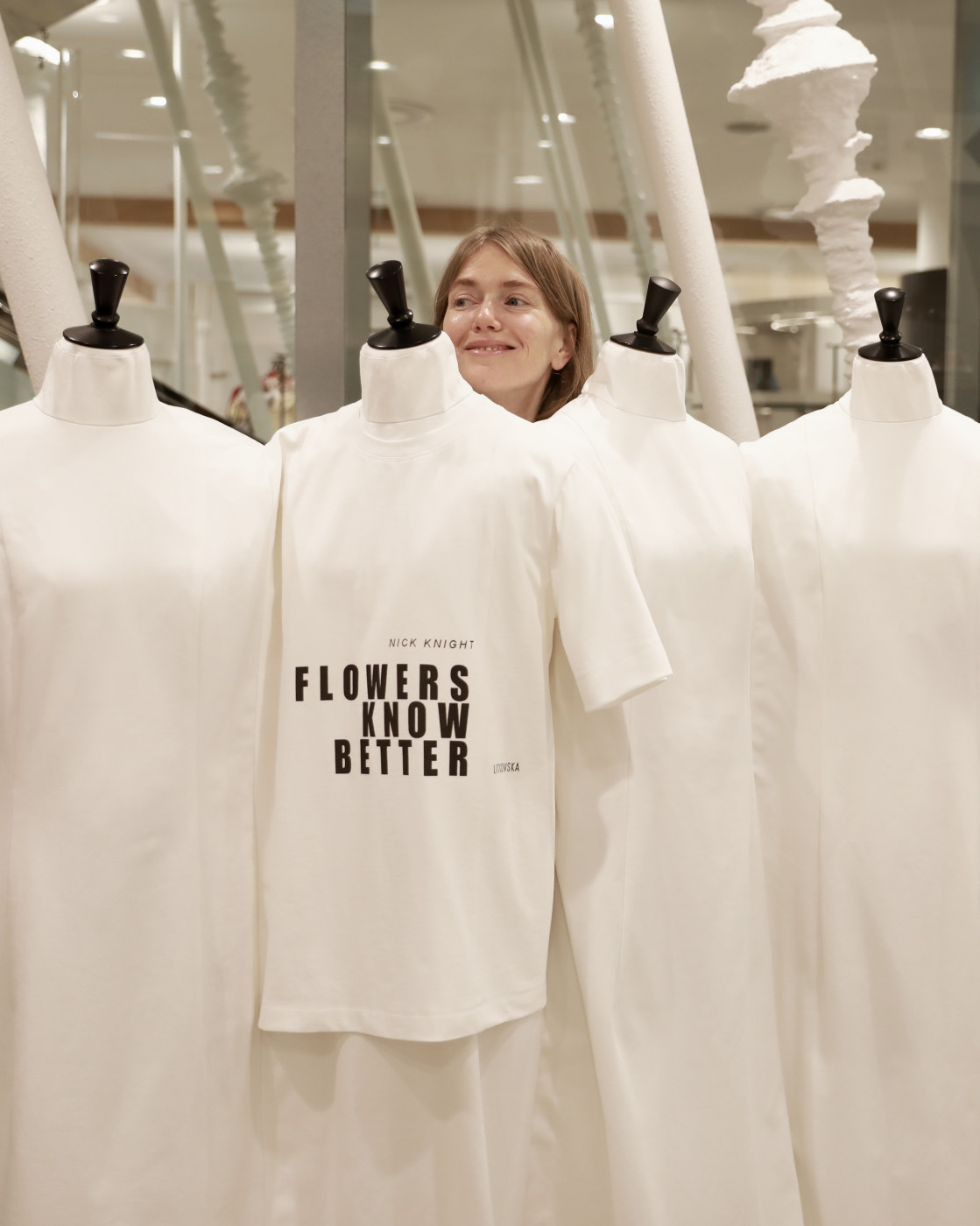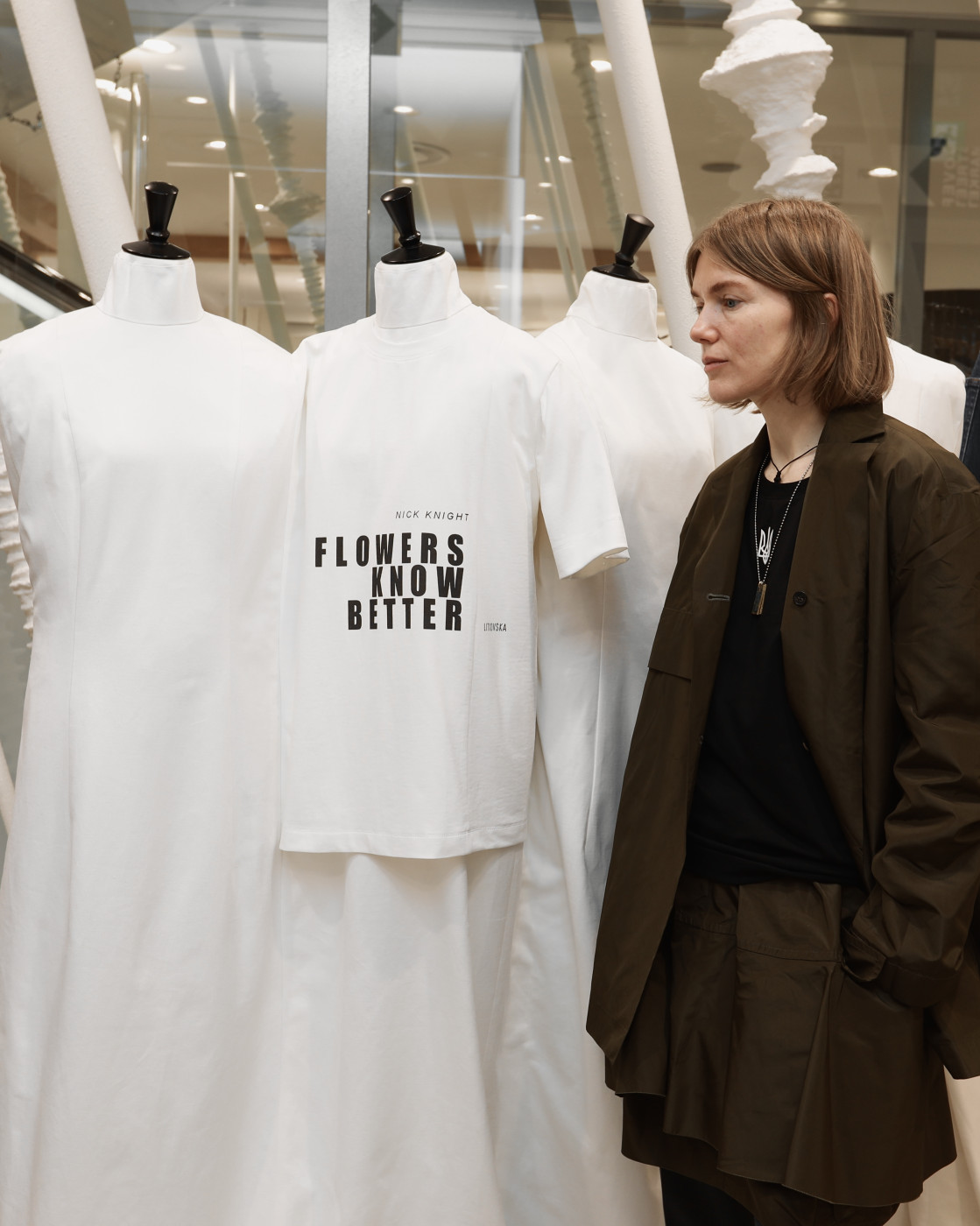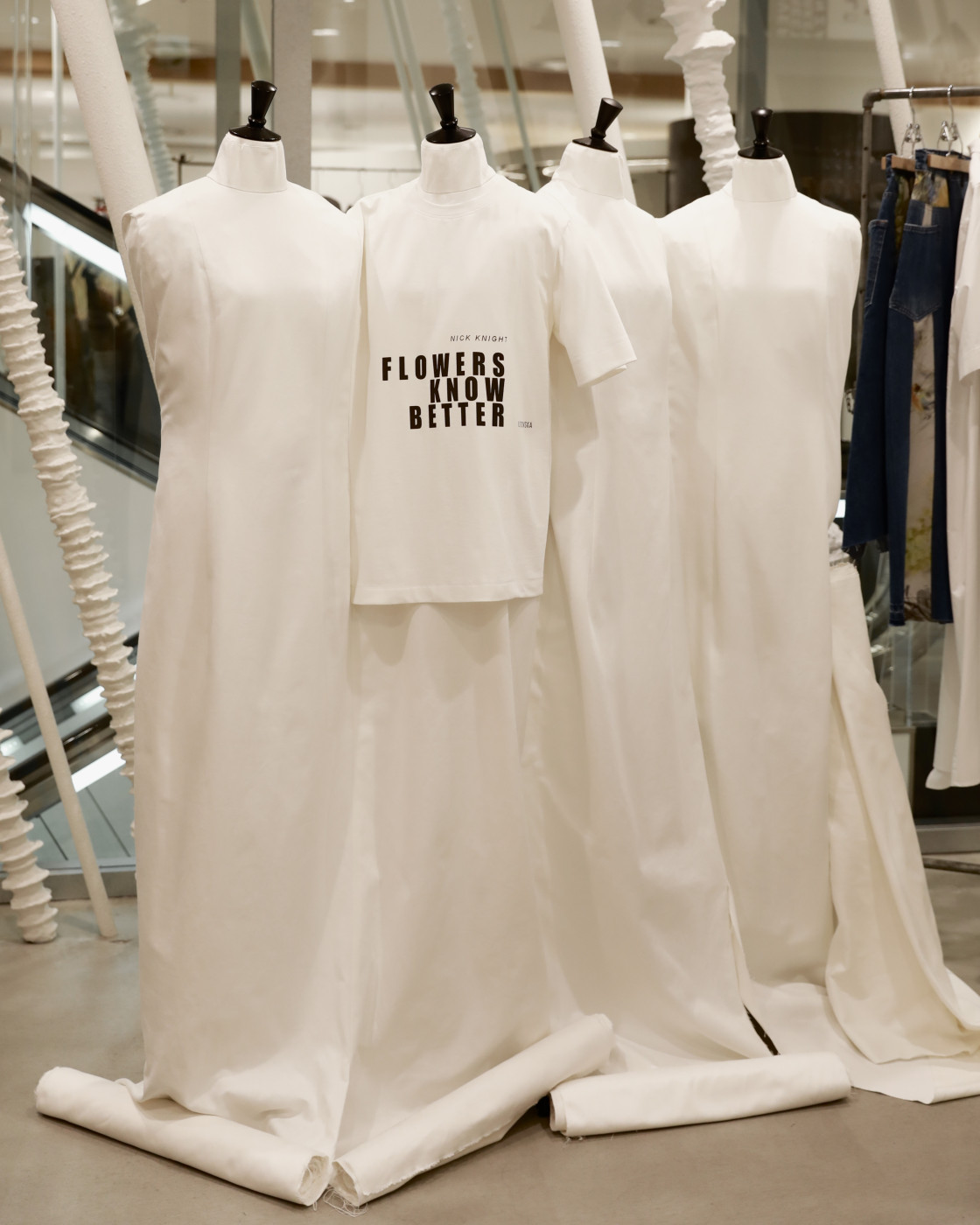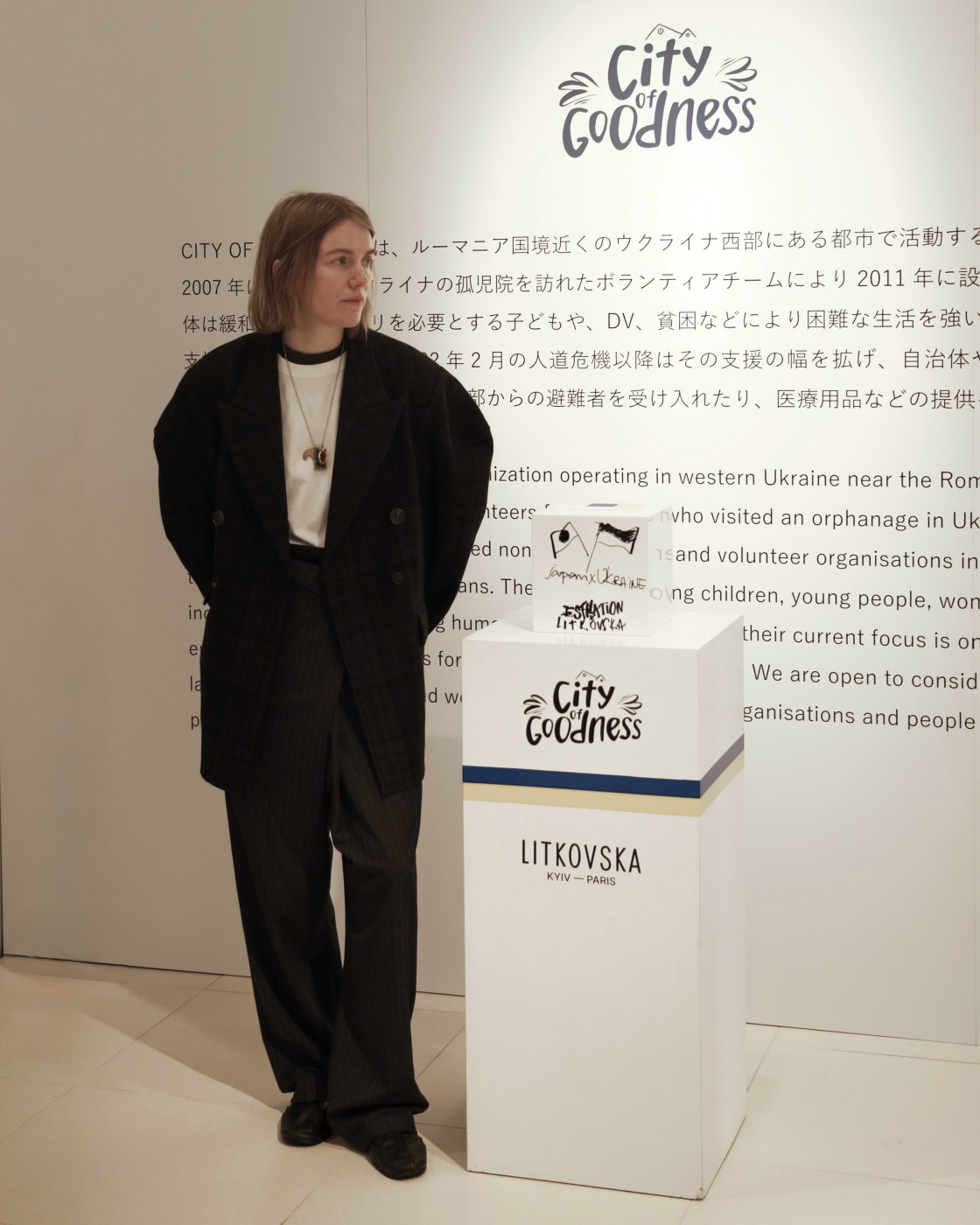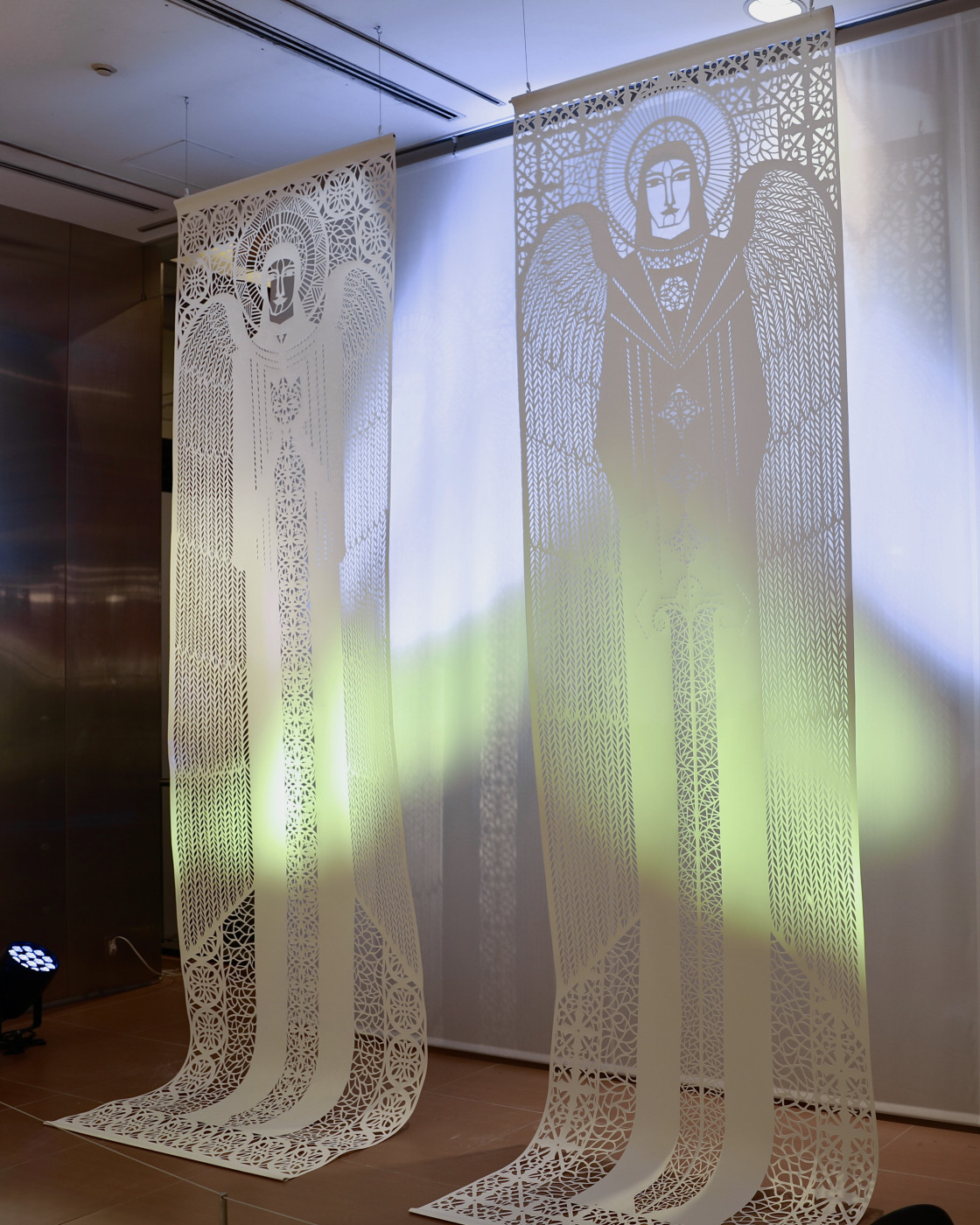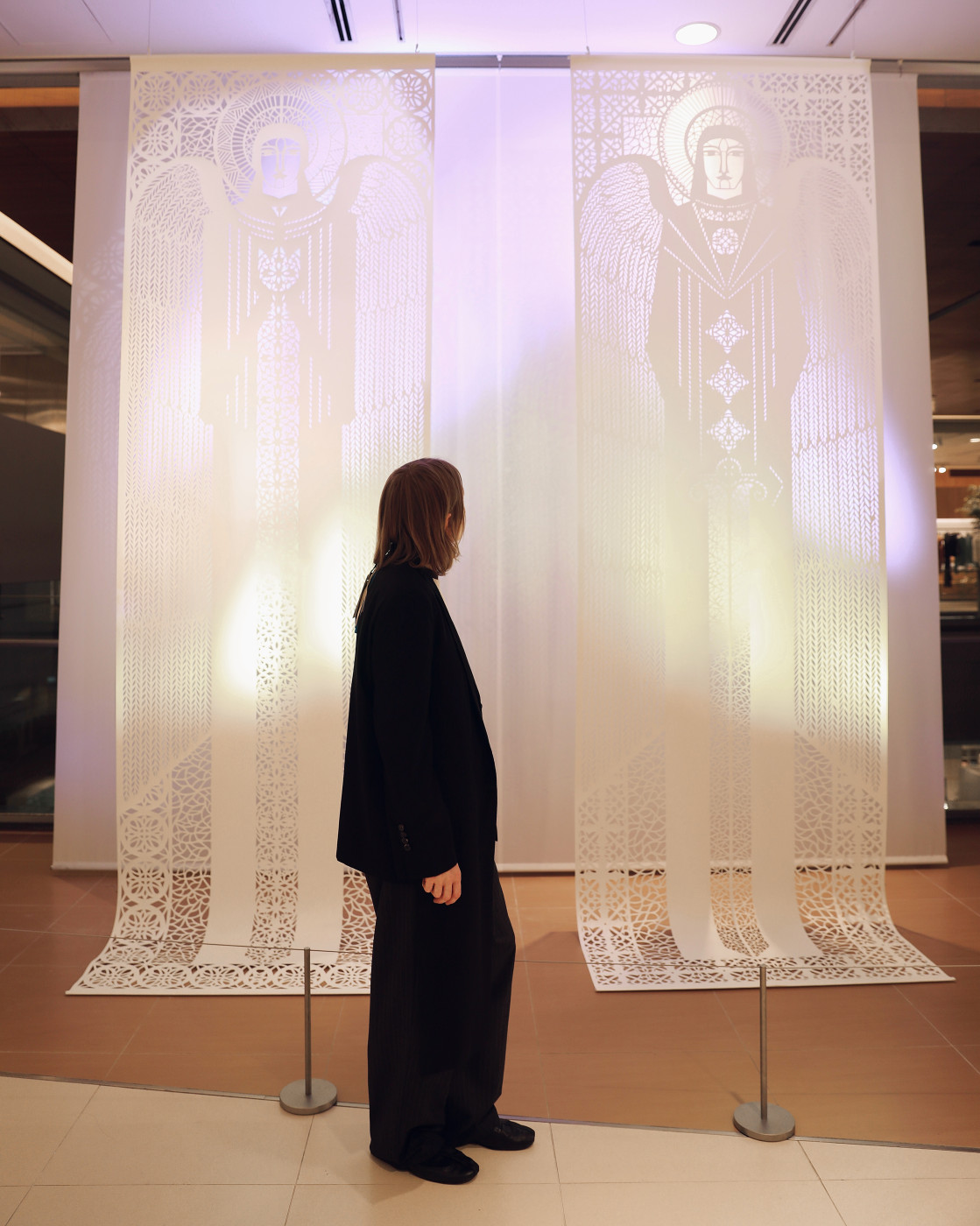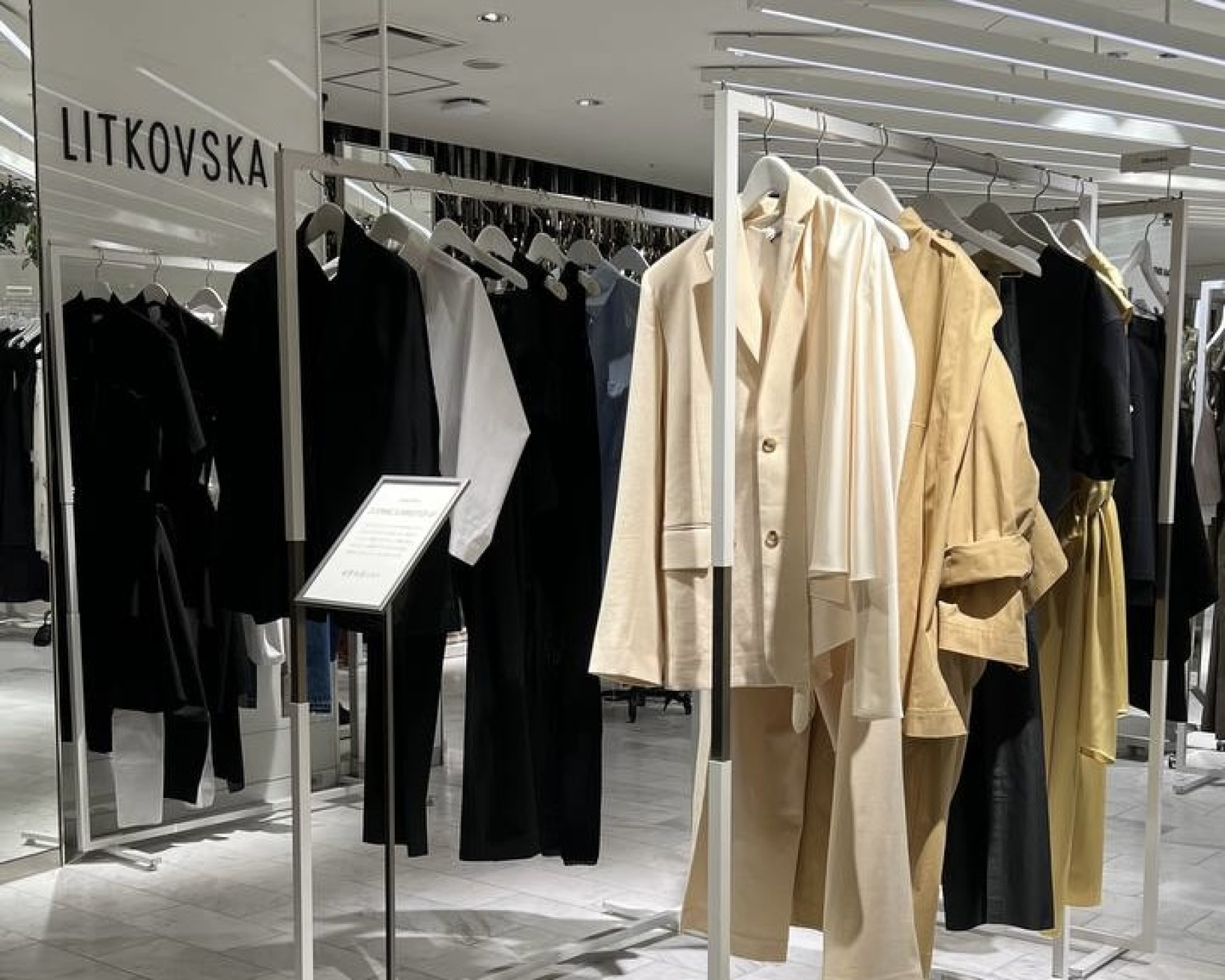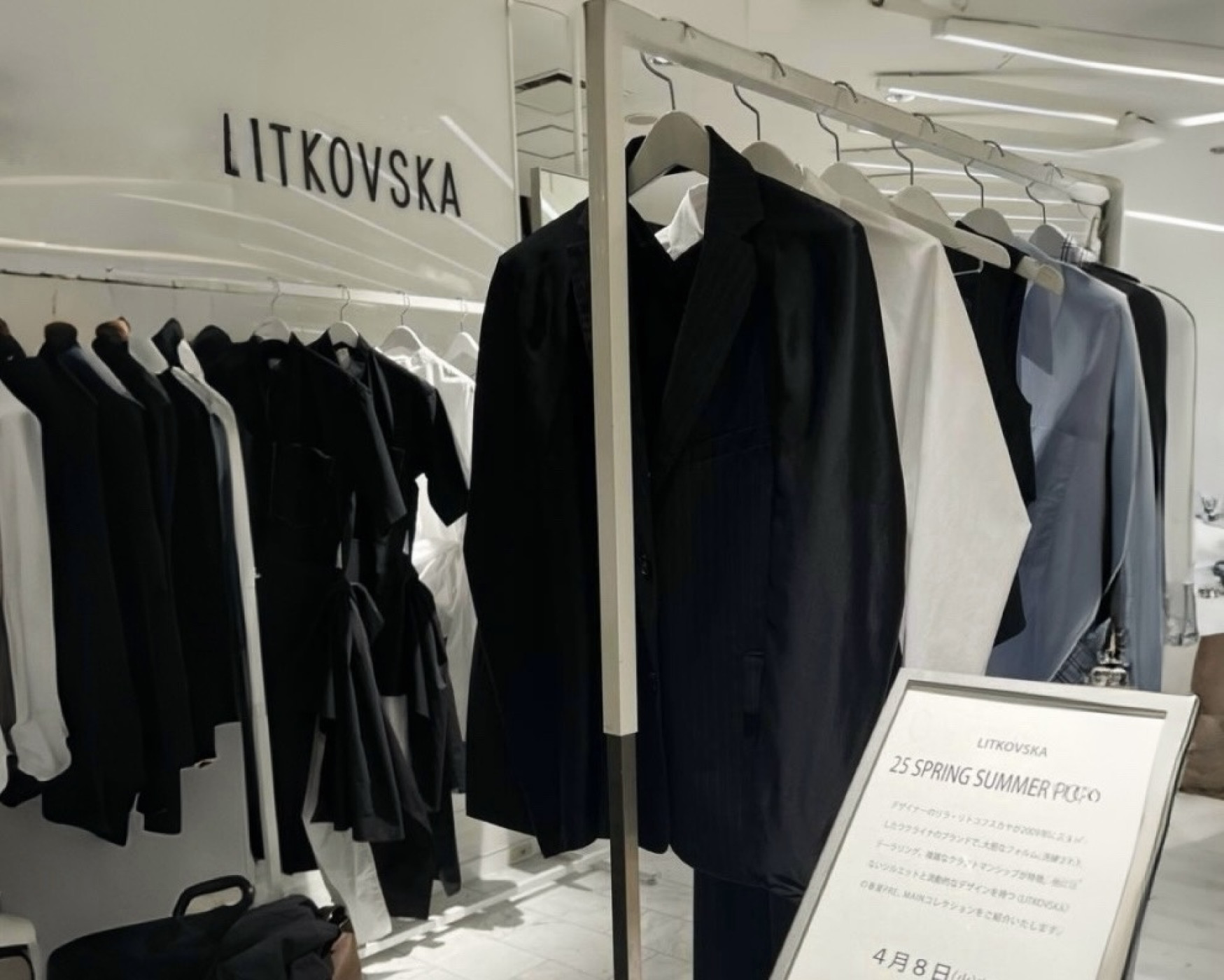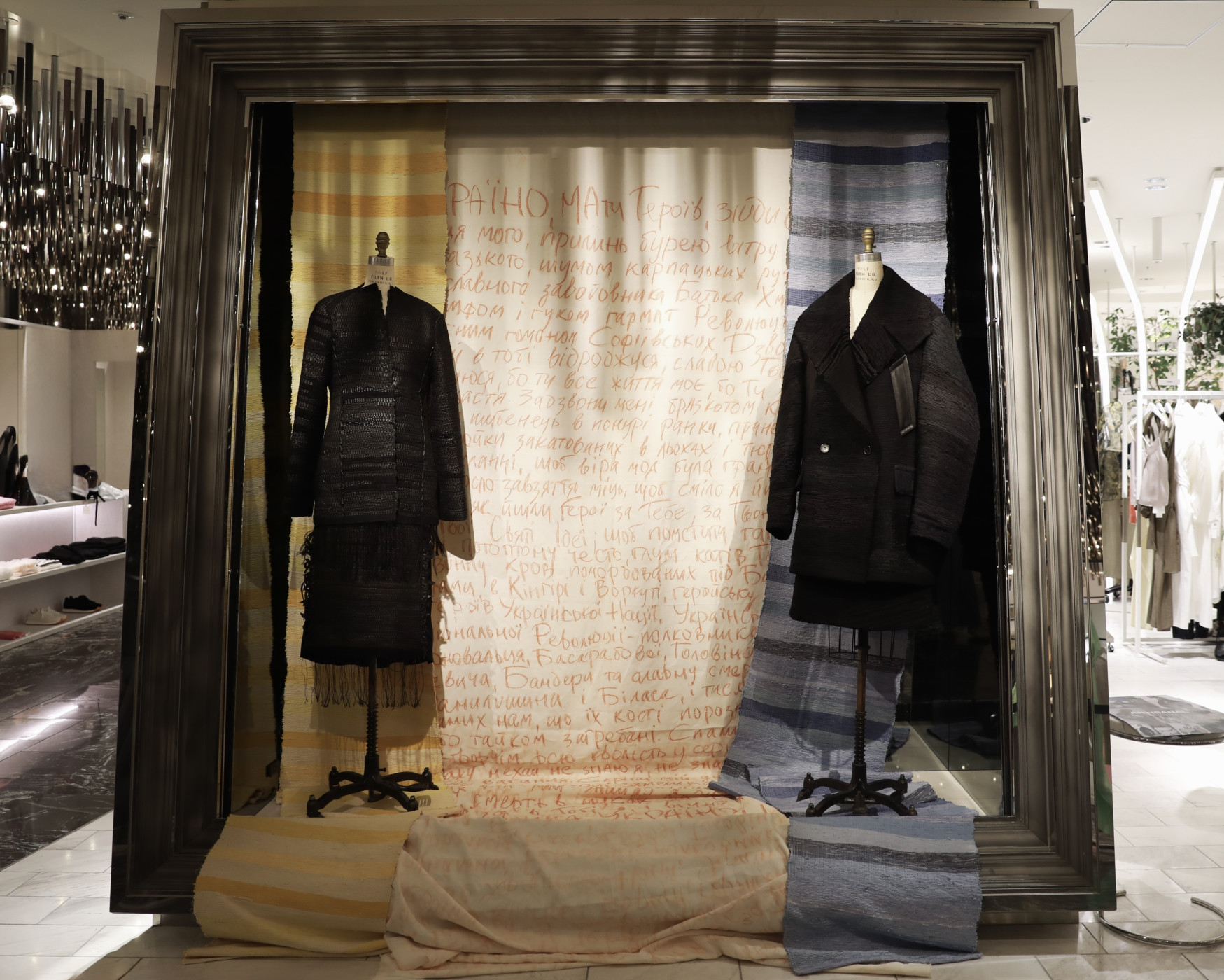
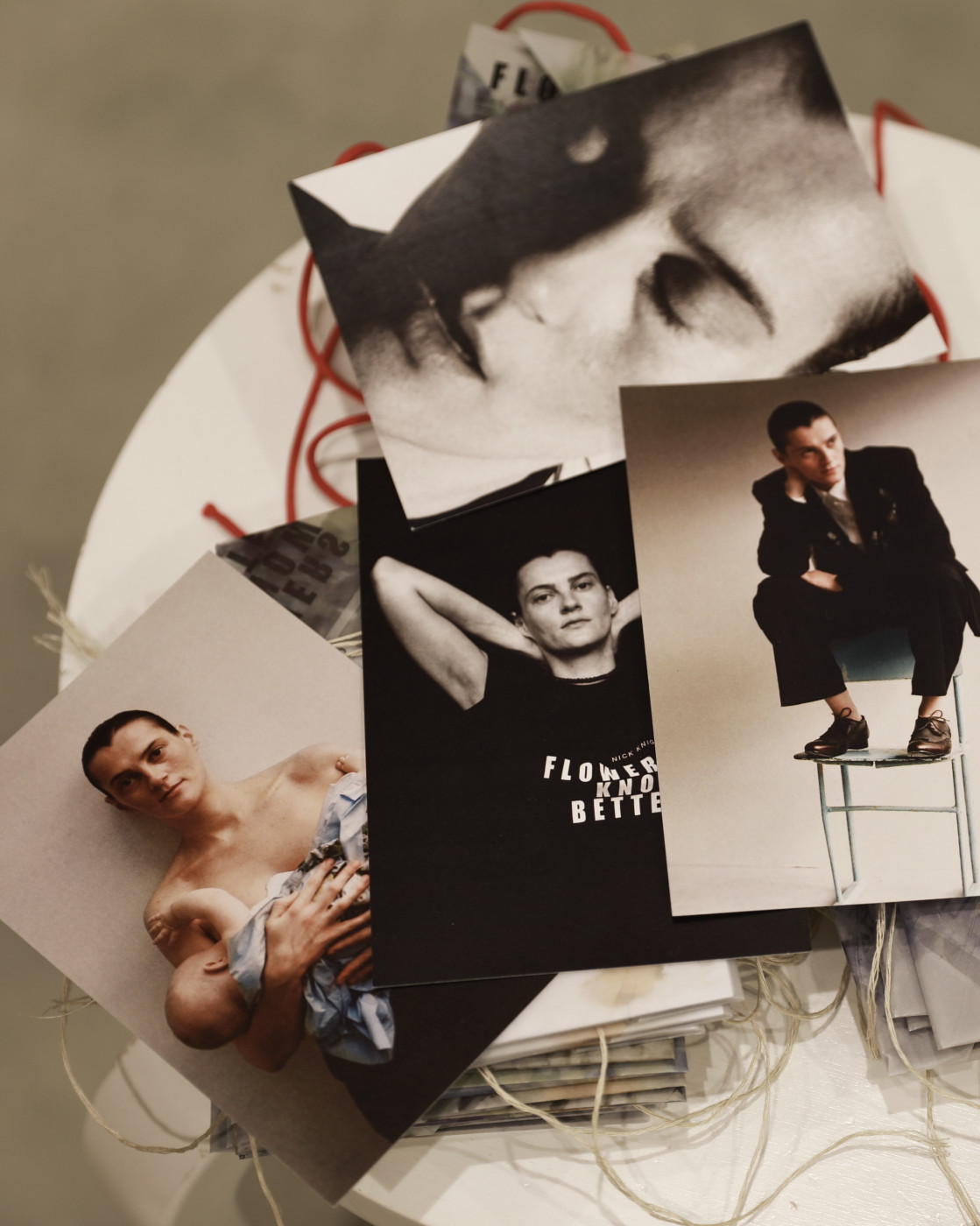
Big In Japan: How Litkovska’s Quiet Power is Redefining Fashion’s Role
In a city of glass towers and muted streets, a different kind of revolution has taken root. This spring, Ukrainian brand Litkovska deepened its presence in Tokyo not with spectacle, but with silence — unfolding a trilogy of installations across Dover Street Market Ginza, Estnation, and Isetan Tokyo. Together, they form a meditation on craft, resilience and the quiet insistence of beauty in times of crisis.
At Dover Street Market Ginza, Litkovska unveiled a poignant collaboration with British image-maker Nick Knight. Mannequins draped in crisp white garments stand like sentinels beneath a sky of visionary blooms—Knight’s signature reimagining of floral iconography. The capsule collection, exclusively available at DSM Ginza, draws from Zhniva, the Ukrainian harvest season, blending sharply tailored blazers, open-back vests and soft T-shirts emblazoned with “Flowers Know Better.” The collaboration is more than aesthetic; all proceeds are directed to “Misto Dobra,” a Ukrainian initiative supporting displaced women and children. Here, fashion becomes a quiet form of activism — an act of kindness stitched into every seam.
A short distance away, at Estnation Tokyo, Litkovska offers a more ethereal reflection. “Become Someone’s Angel” invites visitors not merely to admire, but to act. The installation is anchored by traditional vytynanky—delicate Ukrainian paper cuttings by artist Daria Alyoshkina-Starukh—depicting Archangels Gabriel and Michael, protectors balancing strength and compassion. Here, a donation is not a transaction; it is a transformation. Through QR codes embedded in the space, guests are encouraged to directly support the creation of Ukraine’s first children’s hospice. It is fashion as invocation, asking each of us to become an angel in someone else’s story.
Meanwhile, at Tokyo’s landmark Isetan, Litkovska stages a powerful third act: a handwritten Azov Prayer flanked by woven blue-and-yellow panels, a tribute to the defenders of Mariupol’s Azovstal steel plant. Beneath it, two mannequins in monochrome garments — crafted using ancestral Carpathian techniques — stand as silent witnesses. These are not just clothes; they are relics of endurance, woven with history, memory and defiance. Creation, in Litkovska’s vision, becomes an act of survival.
That Litkovska’s presence in Japan continues to grow — now stocked in 18 locations — is testament not to trends, but to a deeper resonance. In an Asian market where luxury can feel increasingly transactional, Litkovska offers something more: fashion rooted in memory, charged with meaning, and delivered with integrity.
At a time when the world feels increasingly uncertain, Litkovska reminds us that beauty, when imbued with purpose, becomes something else entirely: a ritual, a resistance, a quiet promise for a brighter and peaceful future.
Courtesy: Litkovska
Text: Elizabeth Arfush


